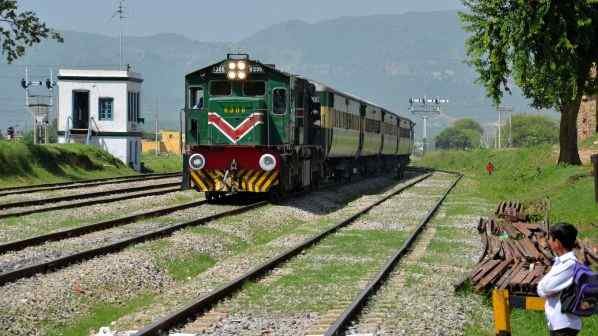Pakistan is seeking full financing from the Asian Development Bank (ADB) for its $7 billion Mainline-I (ML-I) railway project after China backed out of a decade-long commitment to fund most of the scheme.
Beijing had initially agreed to cover 85% of the cost under the China-Pakistan Economic Corridor (CPEC), but the deal fell through over financial concerns, according to officials quoted by The Express Tribune. With Chinese support off the table, Islamabad is now appealing to ADB, the Asian Infrastructure Investment Bank (AIIB), and other lenders to keep the country’s biggest railway upgrade alive.
Karachi-Rohri Line Becomes Priority
The ML-I project—designed to modernize Pakistan’s crumbling north-south rail corridor—will be funded in stages, starting with the Karachi-Rohri section, a $2 billion stretch deemed crucial for freight movement. This line is particularly strategic, as it will transport copper and gold from the Reko Diq mines in Balochistan, which are expected to begin production by 2028.
ADB and AIIB are preparing to jointly invest around $1.2 billion in this section, but the final figure hinges on detailed technical assessments. Pakistan has been urged to submit updated design plans, and the Planning Commission is reviewing revised cost estimates for approval.
Financing Gaps Remain
While some progress is being made on Karachi-Rohri, other parts of ML-I remain in limbo. The ML-III section, responsible for mineral transport from Reko Diq, has raised red flags among lenders due to its limited commercial viability, making financing difficult.
To address planning challenges, ADB has approved a $10 million Project Readiness Facility to revalidate feasibility studies and fine-tune engineering designs. This step is critical before lenders commit to multi-tranche financing packages.
Potential Cost Adjustments
The combined cost for the Karachi-Rohri and Rohri-Multan sections currently stands at $3.6 billion, but ADB expects competitive bidding to bring costs down. Officials hope this will make the project more attractive to international financiers, including the European Investment Bank, which has expressed interest in joining the funding pool.
ADB Signals Broader Support
ADB President Masato Kanda has reaffirmed the bank’s willingness to back Pakistan’s infrastructure push, citing priorities such as climate resilience, energy transition, and sustainable economic growth. If successful, the ML-I project would represent one of Pakistan’s largest railway investments in decades, offering a much-needed upgrade to a network that handles around 70% of the country’s freight.
With Chinese funding off the table, Pakistan now faces the challenge of stitching together a complex patchwork of financing partners to push forward a project that is vital for both trade and resource extraction.

